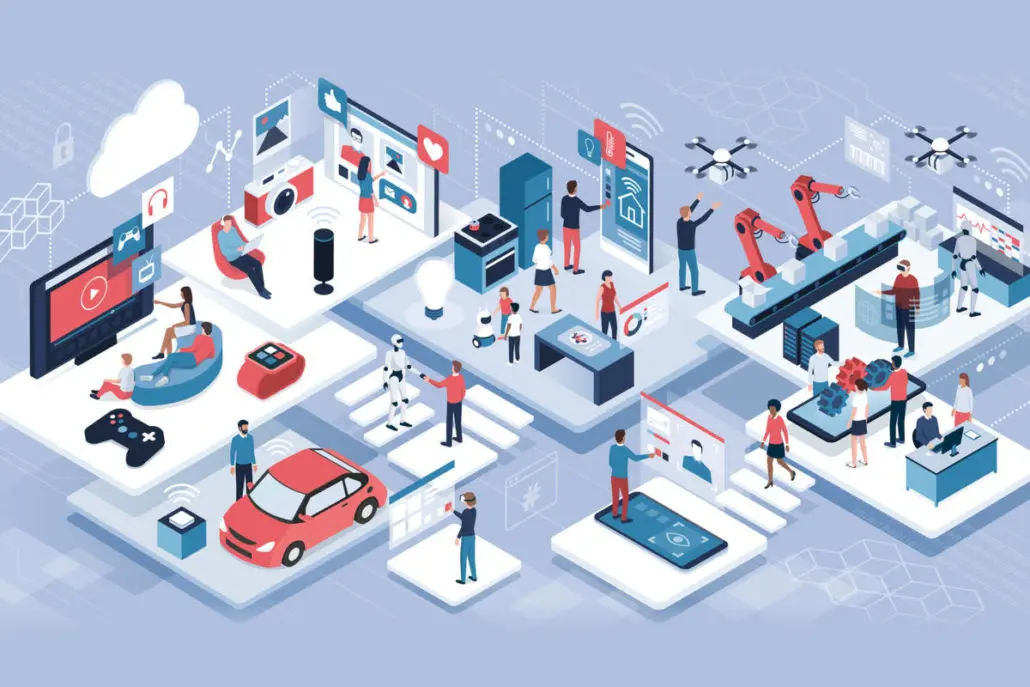Data Science and AI Practicum Internship Program
Data science, analytics and generative AI training with a 6-month internship.
Trusted by Leading Companies








Training and industry experience in one program.
Job seekers in data science and AI struggle with finding a job because of the lack of real-world experience. Data Science Dojo Practicum program fulfills this need by combing training with a 6-month internship program.
The program is designed to train you on cutting edge data science, analytics and AI skills while offering you a fulltime internship opportunity at Data Science Dojo.
Large Language Models Bootcamp
- Instructor-led training
- Personal coding sandboxes
- No subscriptions needed


Data Science Bootcamp
Be a part of our top-rated Data Science Bootcamp and learn a diverse set of skills in a highly collaborative environment. With a comprehensive curriculum and hands-on experience, you will acquire all the knowledge you need to steer your career as a data scientist.
- Instructor-led training
- Practical data science
- Hassle-free programming
Career Support
The Practicum program comes with a comprehensive career support package. Our experts and mentors help you build your data science portfolio and prepare you for data science interviews. The program is designed to ensure success in the market.
- Dedicated mentoring sessions
- Build your data science portfolio
- Practice interviewing skills


Free Trainings and Tutorials
Your journey doesn’t end with this program. The Practicum Program comes with added benefits that last even after you’ve completed the training. You will have access to free courses, tutorials, blog articles, and problems and exercises to help you practice your data science skills.
- Free python for data science training
- Post-bootcamp tutorials
- Free tutorials and blogs
Career Tracks
We offer a range of career tracks for you to choose from. What is more, these tracks do not restrict you to a single aspect of data science and can always go in conjunction with others, based solely on your interests.
Track 1: Analytics Translator
Analytics translators are professionals who serve as a bridge between various actors in a data science organization. Besides an understanding of core data science/engineering concepts, Analytics Translators possess skills like domain knowledge, project management, requirement gathering, prioritization, customer communication, and communication of insights and results.
Who should consider this track?
If you would like to build a career as a product manager for data products, this track would be a good fit for you.
What will a trainee learn in this role?
We use some of the most sophisticated tools for analytics. You will be expected to understand customers based on usage heatmaps, email/web analytics, customer communication, and other sources of data and come up with product ideas. You will be asked to prioritize the features in these products and get at least one product implemented by the end of your 12-week trainee period.
Track 2: Consumer Understanding
Our customers interact with us via different touch points. Besides our website they visit other properties like code.dsd, blog, learning platform, and demos. In addition to this, our customers also interact with us through our Facebook, LinkedIn, Twitter, YouTube, and Instagram channels. We also send out email campaigns and surveys to our customers. Customer understanding track focuses on getting actionable insights about customers using all of these data points.
Who should consider this track?
Anyone interested in building a career in web analytics, customer understanding, market research, and building data products.
What will a trainee learn in this role?
We use cutting-edge tools and techniques for understanding customer behavior, including HubSpot, Hotjar, Google Analytics, Segment.IO for data acquisition. You will be cleaning, joining, aggregating a lot of messy data. You will be expected to perform exploratory analysis on this data and possibly build propensity/churn models on real-world data and test your models in real business setting.
Track 3: Marketing Analytics
Modern marketing is all about being data-driven. Our state-of-the-art marketing analytics infrastructure collects a lot of data. How do we know which of the marketing campaigns, referrers, touch points, or channels is effective? How should we allocate our advertising dollar?
Who should consider this track?
If you’re interested in the marketing aspects of data science and aspire to become a Marketing Data Scientist, this track is ideal for you.
What will a trainee learn in this role?
You will work at the intersection of classical marketing strategies and modern data science tools and techniques. You will learn tools for CRM, data acquisition, event tracking, campaign management, and visualization.
Track 4: Sales Analytics
Data-driven sales strategies have become so powerful that organizations have dedicated groups of data scientists and analysts working on sales data. These organizations, clearly, see immense value in gathering insights from sales data. Sales analytics is identifying, modeling, and predicting trends to determine the best course of action for increased results. It involves all forms of business transactions, calls, emails, and meeting notes. You will work on creating target segments with the cutting edge tools and techniques in industry.
Who should consider this track?
If you have an interest in data-driven sales strategies, this track is for you. This track will help you in becoming a Sales Strategist who can extract valuable information from data and recommend the best course of action.
What will a trainee learn in this role?
You will learn to analyze textual data by processing and modeling a large number of emails. We use Outlook 365 and HubSpot to track email interactions. You are expected to perform exploratory analysis by converting unstructured data into structured data and create topic models.
Track 5: Web Analytics
Almost every business has an online presence these days. Web analytics is a popular resource to collect and measure web data to understand and optimize web usage. We use the most sophisticated tools in the industry to optimize user experiences. It involves analyzing traffic data to map user behavior and increase conversion rates.
Who should consider this track?
If you’re looking for a career in Web Analytics and Engineering, this track is ideal for you. The tasks during the trainee period will increase your understanding of user behavior flows.
What will a trainee learn in this role?
You will learn to analyze traffic data and understand user behavior on the web. We use Google Analytics, HubSpot, and Hotjar to monitor our website’s performance. You are expected to create actionable reports and recommend changes in web pages by developing a hypothesis and conducting online experiments.
Track 6: Social Media Analytics
Social media is commonly used to build an online presence and these networks collect large amounts of data every second. We have a huge following on YouTube, LinkedIn, Facebook, Twitter, and Instagram along with several posts and mentions daily. This track involves gathering data from social networks to analyze and recommend changes to enhance likability.
Who should consider this track?
If you’re interested in the marketing aspect of data science, particularly the social media platforms, this track is for you.
What will a trainee learn in this role?
You will work on gathering data from multiple social media networks using APIs to measure performance of our social media channels. You will also work on consolidating large amounts of semi-structured data to analyze social sentiment by putting them into context and categorize emotions by intensity.
Track 7: Customer Feedback Analytics
Customer feedback is one of the most important aspects of business. It is essential to collect feedback and understand customers’ experiences. We analyze our customer feedback closely so we can find the hidden value for improving our services. This track involves working with surveys, reviews, and user behavior data gathered from our learning platform to learn about our customers needs.
Who should consider this track?
If you’re looking to build a career in customer success analytics and building data products, this track is ideal for you.
What will a trainee learn in this role?
You will learn to analyze customer feedback by consolidating various sources of feedback into a structured form and build data visualizations for exploration. Using natural language processing techniques, you will work on understanding customer satisfaction.
Track 8: Email Campaigns Analytics
Every organization sends/receives thousands of emails. Measuring the success of email campaigns can directly attribute to revenue or conversions. Being able to harness insights from email campaigns can put organizations ahead of their competitors. Our email campaigns generate a lot of data and we use cutting-edge tools and techniques to track and analyze our email campaigns.
Who should consider this track?
If you’re interested in becoming a Marketing Data Scientist, with a special focus on communication via email, this track will be a great choice for you.
What will a trainee learn in this role?
You will work on analyzing email campaigns to explore possible improvements in campaign design and outreach. We use HubSpot, Google Analytics, and Mandrill to track email campaigns. You are expected to run exploratory data analysis and conduct A/B tests on email campaigns.
Track 9: Advertising Campaigns Analytics
Online advertising has proven to be an effective way to acquire customers. With online advertising, we get data to measure the success of an ad. A combination of marketing goals and ad metrics allows us to build predictive models. Knowing all the moving parts in an ad campaign can directly drive an organization’s revenue. This track involves working on ad campaigns data to enhance effectiveness of advertisements.
Who should consider this track?
This track is for you, if you’re interested in the marketing side of data analytics. The focus will primarily be on advertisements and how to make the most out of them.
What will a trainee learn in this role?
You will work on advertising campaigns data from Google Adwords, Facebook, LinkedIn, and Instagram. You are expected to optimize acquisition cost, time to ROI prediction, segment target audience, and build propensity to buy models with real advertising campaigns.
Track 10: ETL and Log Mining
Event logs represent a prime source of big data. Given the rich and varied data in event logs, it is a critical skill to have for a Data Scientist. Our learning platform and other web properties utilize cutting-edge technologies in software and data engineering. This track might involve any of the following:
- Setting up ETL pipeline for various online properties
- Mining of events (clicks, page loads, logins etc.)
- Writing scripts
Who should consider this track?
If you’re interested in becoming a Data Analytics Engineer or starting a career as a Developer with a focus on data analytics, this track is ideal for you.
What will a trainee learn in this role?
You will work on building a data analytics pipelines for multiple platforms with fine-grain event tracking. You are expected to extract event logs, analyze user behavior, and build dashboards for real-time tracking.
How It Works
Application Form
Fill out the application form to show your interest in our competitive Practicum program.
Interview Phase
Succeed in a series of interviews and get a chance to learn and work with Data Science Dojo.
Internship Period
Work with our team of scientists and engineers for 6 months to gain quality experience in data science.
In-Class Learning
While completing your internship, complete our comprehensive curriculum to accelerate learning and complement your internship experience.
Career Support
Prepare for job interviews through our career support and one-to-one mentoring sessions.
Get Hired
With your career preparation, work experience, and in-class education, you’re ready to enter the job market and take the next step in your career.

Technology Stack
During the Bootcamp and while working with our teams, you will get to learn and use numerous tools to put your knowledge to practice. With an understanding of all the latest tools and technology, you’re bound to succeed in the market.
Tools and Environments
- Git and GitHub
- Python and R
- JupyterHub
Cloud Platforms
- Amazon Web Services (AWS)
- DigitalOcean
- Google Cloud Platform (GCP)
Storage and Databases
- MongoDB
- Amazon Web Services (AWS)
- MySQL
Teamwork and Collaboration
- Jira
- Confluence
- Bitbucket
CRM and Automation
- HubSpot
Infrastructure
- Docker
- Spark
- Apache Hadoop
Analytics
- Google Analytics
- Hotjar
- SEMrush
ETL
- Power BI
- MongoDB
- MySQL
LMS and CMS
- Python (Django)
- WordPress
- Moodle
Recommended by Practitioners
At the end of the fifth day I think all of us are at the same place, so that’s the beauty of this program. You could come from any background because we are covering some diverse topics here, and making sure it’s a level playing field and again, going back to to the motto of, hey, this is for everyone. Kapil Pandey, Analytics Manager at Samsung
It was a great experience for increasing the expertise on data science. The abstract concepts were explained well and always focused on real applications and business cases. The pace was adjusted as needed to let everyone follow the topics. Week was intense as there are many topics to cover but schedule was well managed to optimize people attention.Harris Thamby, Manager at Microsoft
What I enjoyed most about the Data Science Dojo bootcamp was the enthusiasm for data science from the instructors.Eldon Prince, Senior Principal Data Scientist at DELL
Highly valuable course condensed into a single week. Enough background is given to allow one to continue their learning and training on their own.Good energy from the instructors. It is clear that they have real industry experience working on problems.Ben Gawiser, Software Engineer at Amazon
I’m really impressed by the quality of the bootcamp, I came with high expectation and Data Science Dojo exceeded it. I highly recommend the bootcamp to anyone interested in Data Science!Marcello Azambuja, Engineering Manager at Uber
With the knowledge I’ve gained from this bootcamp I can further add value to my clients. Data Science Dojo is the only training which provides alot of useful content and now I can confidently make a predictive model in few minutes.Iyinola Abosede-Brown, Senior Technology Consultant at KPMG
Frequently Asked Questions
Can I choose multiple career tracks?
We do not believe in one-size-fits-all. However, each of the career tracks involves a lot of work. While you may eventually end up working on multiple areas, we will encourage trainees to stay focused on just one career track.
Is this program full-time or part-time?
The Practicum program is a full-time opportunity meant for those who are committed to changing careers while providing a path to learn practical data science and analytics roles. The internship requires you to commit for 40 hours every week.
Is this program remote or in-person?
We expect Practicum interns to compete the program in a remote format. However, we are located in Redmond, WA. If you are living in Washington State and can commute to our office, you are more than welcome to join.
When does the Practicum program start?
The program has a rolling start date, meaning students can start at any time. There are not set start dates or cohorts.
Can Practicum be completed in a part-time fashion?
Currently, we do not have a part-time option available for Practicum. It is only available in a full-time format.
What financing options are available?
Practicum students can apply for a loan, pay upfront, or take advantage of our income share agreement (ISA). With the ISA, students don’t start paying for the program until they get a job after completing the program. Please note that the ISA is only available for individuals with a United States Social Security number.






